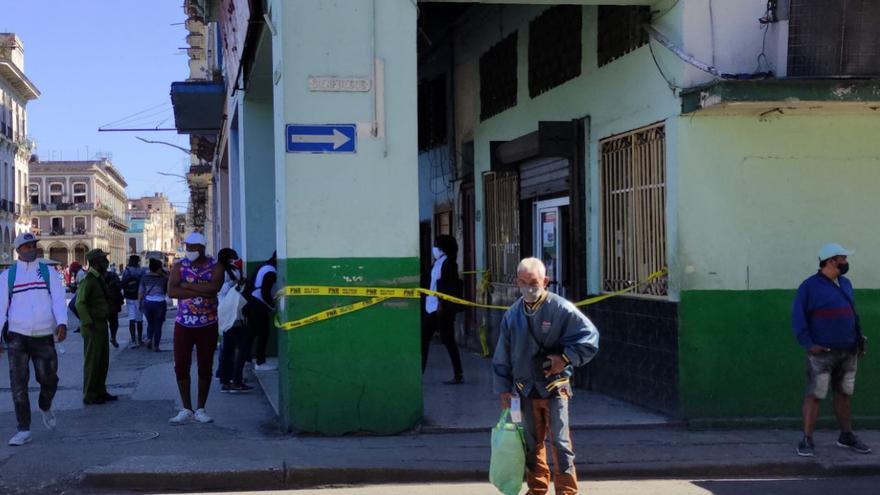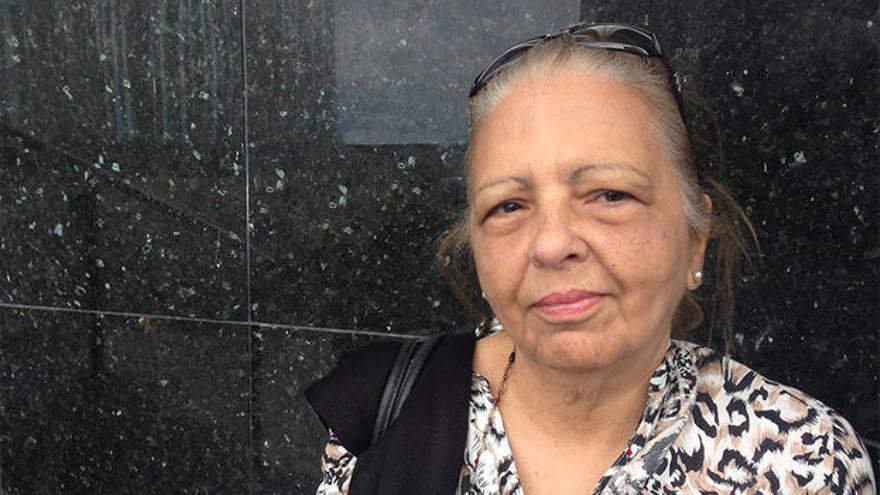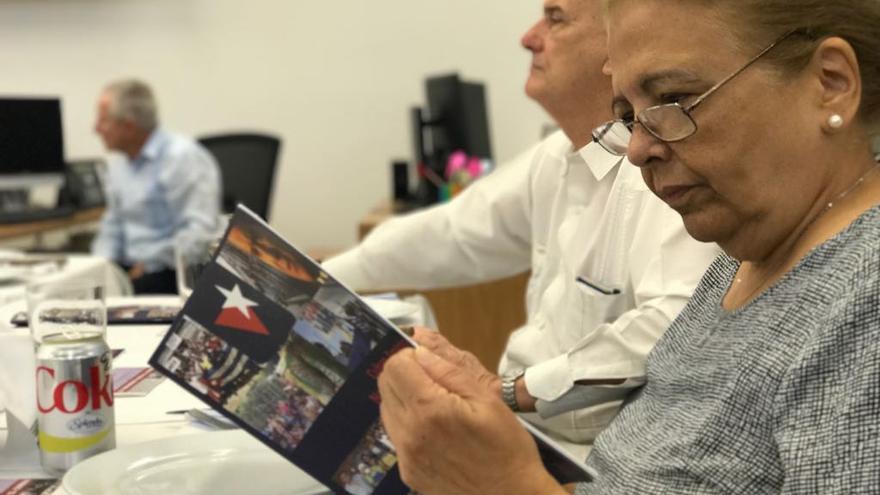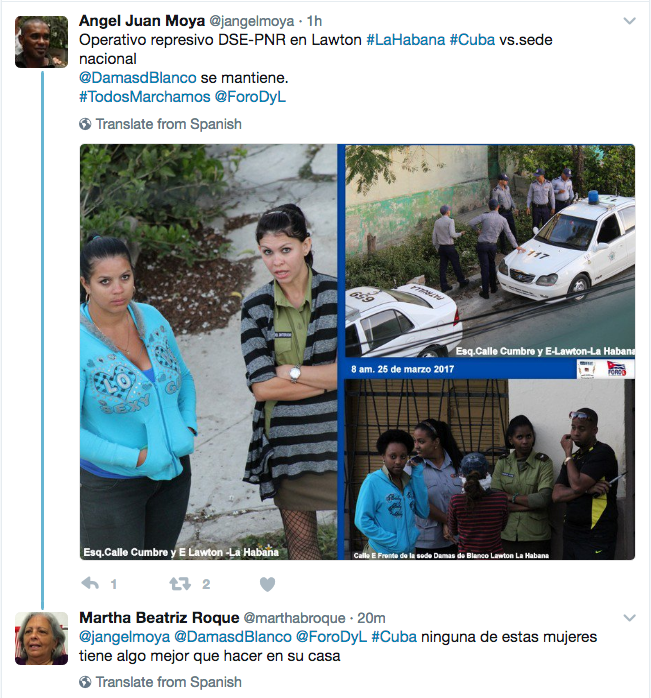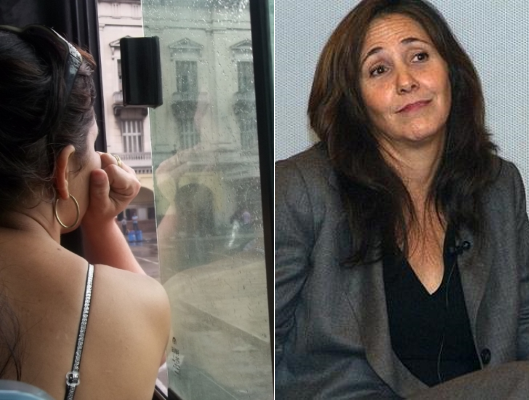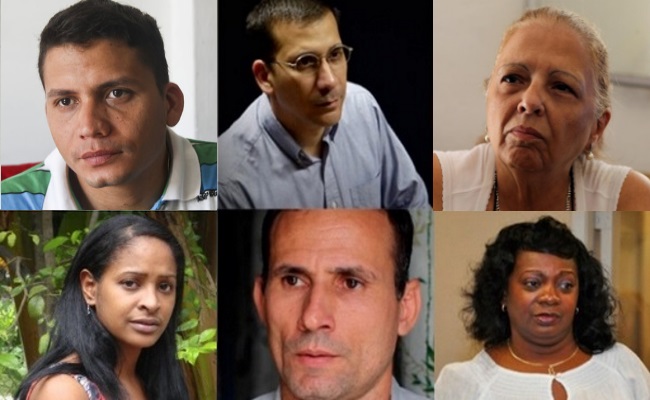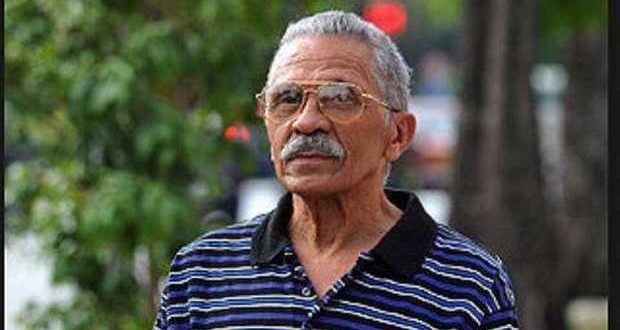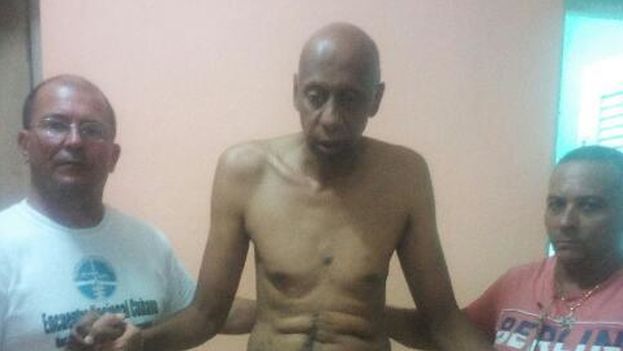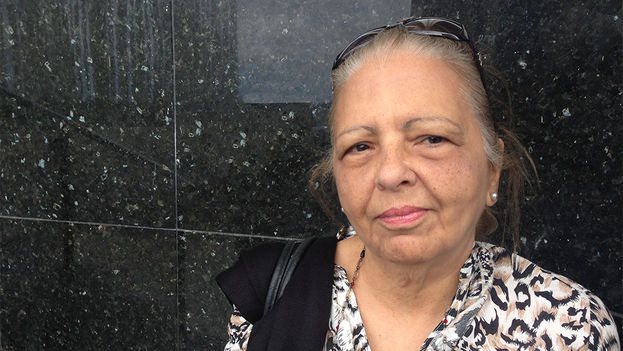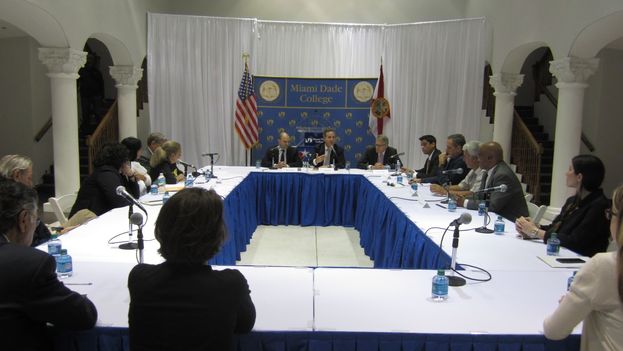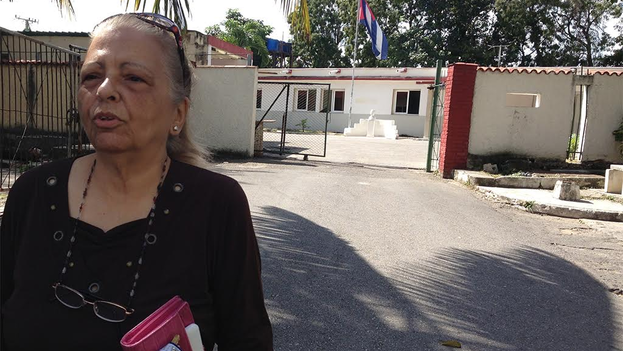THE HOMELAND BELONGS TO US ALL
Cuban Dissidence Task Group
Havana City, June 27, 1997
INTRODUCTION
I – HISTORICAL INTERPRETATION
II- IN THE NAME OF UNITY
III- THE MAIN OBJECTIVE
IV – THE PLAN FOR SOLVING THE CRISIS
V – CONCLUSIONS
VI – RECOMMENDATIONS
Authors: Felix Antonio Bonne Carcasses, Rene Gomez Manzano, Vladimiro Roca Antunez, Martha Beatriz Roque Cabello
Translated for CubaNet by Jose J. Valdes
INTRODUCTION
When you finish reading this document, you will be able to support us if we can agree on this initial assertion:
Man cannot live from history, which is the same as living from stories. There is a need for material goods and for satisfying his spirituality, as well as to be able to look to the future with expectations. But there is also a need for that openness that we all know as freedom.
The Cuban government ignores the word “opposition.” Those of us who do not share its political stance, or who just simply don’t support it, are considered enemies and any number of other scornful designations that it chooses to proclaim. Thus, they have also sought to give a new meaning to the word “Homeland” that is distortedly linked to Revolution, Socialism and Nation. They attempt to ignore the fact that “Homeland,” by definition, is the country in which one is born.
All of this aside, our Task Group has examined the Project Document prepared for the V Congress of the Cuban Communist Party, scheduled to be submitted for approval during this event. Because it is impossible for us to make public our viewpoints here [in Cuba] (given that the [Cuban] news media is in the hands of the state), we have decided to set them down in the hope that they will somehow be made known to Cubans inside and outside the island. By this mean we seek to defend our right to express our opinion, because we are convinced that THE HOMELAND BELONGS TO US ALL.
I – HISTORICAL INTERPRETATION
Of the 11,080 words that the document contains, grouped into 260 paragraphs, more than 80% are dedicated to interpreting history. They wish to convince those that read the document that:
-
- There has been only one revolution [in Cuba] since 1868; and
- The U.S. has tried to seize Cuba ever since the 19th century.
To try to strengthen these assertions, they invoke the name of [the father of Cuban independence, Jose] Marti.
Thereby they persist in the old and absurd argument that the existence of a single political party is based on Marti’s ideas, as only one party was founded by him. There is no known political leader that has created various continue reading
There is no reason to think that Marti, had he survived the War of Independence, would not have done the same given his very positive views on democracy. Point V of the Tenets of the Cuban Revolutionary Party (1892) states: “It is not the goal of the Cuban Revolutionary Party to bring to Cuba a victorious group that will consider the island as its prey and dominion. It is, instead, to prepare, by as many efficacious means as freedom in exile permits, the war which is to be fought for the honor and welfare of all Cubans, and to deliver to the whole country a free homeland.”
Following the war, no patriot argued for the need to have a single party. On the contrary, many actively participated in politics with different affiliations and all respected the multi-party system.
Even though they wish to portray the democratic republic as a series of interrupted failures and treasons, they have to contend with the socioeconomic achievements obtained between 1902 and 1958 which placed our country among the three most advanced nations of Latin America. In some areas, in fact, Cuba was ahead of even major Old World countries such as Spain and Italy. This undeniable reality speaks volumes for the industriousness of Cuban workers and the enterprising spirit of our businessmen— especially as all these true accomplishments took place following a major cataclysm (our glorious War of Independence) and in spite of the terrible socioeconomic crisis of the 1930s. In addition, there are the political successes, such as the revocation of the infamous Platt Amendment in 1934 which the political propaganda does not mention, though its imposition in 1901 is well-remembered.
This twisting of information is also present in the document. If the pre-1959 statistics are consulted, it can be seen that the illiteracy rate among the Cuban population at the time amounted to 16% and not 40% as proclaimed. The statistics are also manipulated when it is stated that 7% of the population voted in the elections at the turn of the century. This implies that the remaining 93% included non-voting women (51%), children, and the great number of foreigners that lived here, as is to be expected in a country that had recently ceased to be a colony.
Regarding the application of due process in the trials held for members of the Batista regime, Castroites have their own interpretation. But it must not be forgotten that—as the document recognizes—those principally implicated fled the country on January 1st, on which date the mass executions commenced. Those that were shot by the firing squads were arrested, accused, judged and executed in less than 24 hours. The rise to power of the current government was sealed by a vicious settling of accounts. The so-called “revolutionary trials” bore no relation whatsoever to due process nor to a true right to a defense. A notorious example was the trial of the pilots sentenced after having been absolved, an event which led to the suicide of Captain Felix Pena.
Every year, by an ever-growing number of votes, the General Assembly of the United Nations demands that the so-called [U.S.] “blockade” be ended. This statement is true, but what goes unsaid is that, with the same frequency, the Cuban government is sanctioned for its systematic violations of human rights.
The October [1962] “[Missile] Crisis” is mentioned, while omitting the fact that the Cuban leadership urged Moscow to deliver the first strike without waiting for the “Yankees” to take the initiative. This is acknowledged by history. A nuclear attack against the United States would have meant a terrible catastrophe for all humanity, but, undoubtedly, Cuba would have been swept from the map. That solution to the crisis was offered by the same party members that are now worried—according to them—that their departure from power would mean the disappearance of Cuba as a nation.
But can we forget the autocratic way in which nuclear weapons and foreign troops were brought into the country? The people learned of the matter only after the problem arose.
As the document well states: “Everything began to change on July 26, 1953.” We should not fail to mention that—in effect—on that date, for the first time in many years, much Cuban blood was spilled. Up to that time, the deaths in the political struggle which occurred under the Batista government could be counted on the fingers of one hand. To find in Cuban history as mournful and fratricidal a day as this, we would have to go back to decades long past. Despite its being such a sad day, it has been made into a holiday and celebrated as such. This, we suppose, meets with the disapproval of even the fallen martyr’s own relatives.
These are but a few examples of the way in which the Communists have sought to INTERPRET HISTORY.
II – IN THE NAME OF UNITY
The party insists on unity but forgets that, for that unity to be valid and real (and not a mere parody), it is necessary for a consensus freely reached by the citizenry to emerge. The opposite would amount to a brutish imposition that would be a unity in name only. We the members of the opposition are here to show that in our country there is no consensus.
The text asserts that: “Only the unity of revolutionaries can lead to the unity of the people.” This argument, just like every other perspective on this matter, suffers from what is known in logic as “circular reasoning,” whereby that which is sought to be demonstrated is taken as a starting premise.
The party, declaring itself the representative of the people, prepared the document that warns the citizenry to participate in the meetings to support it. The people, subjected to the pressures of totalitarian power, attend [these meetings], and the fact is portrayed to the world as a plebiscite on Cuban society. This is declared the most evident and irrefutable proof that the party represents all of the people. It is precisely the same premise that was used as a starting point. Although there is talk of plebiscite, the people have felt what it is like to be trampled upon. A latent popular will still exists, just as when General Arnaldo Ochoa and his comrades were sentenced to execution by firing squad. Even though the vast majority did not agree with this sentence, it was officially declared as necessary and the opinions of the masses ignored.
If, as its leaders assert, the citizenry in general supports the Communist Party, there is no reason not to hold internationally-supervised, free elections, which would serve to silence all the detractors of the system.
In the name of unity, the Fist Party Congress considered it legitimate to bestow upon itself constituent powers and approve the final version of the 1976 Magna Carta. This includes Article 5, which proclaims the [Cuban Communist] Party as “a guiding force superior to society and the state.”
We are aware that there are historical precedents for this concept of unity. The Cuban Communist Party, in imposing a single party system, places itself in the unenviable company of Stalin, Mussolini, Hitler, Franco, Trujillo, Pol Pot and Sadam Hussein, among others.
Having called the ranks to order on the matter of unity, the party saw it fit to declare that “the Cuban people have decided to have a single party.” But, in the name of unity, under the concept of shared-guilt for mistakes, we have seen many things that have left their mark on history for having contributed to create chaos and instability in the country. It will suffice to cite a few examples:
- The attempt to drain the Cienaga de Zapata wetlands;
- The creation of an “agricultural belt” around Havana;
- The collectivization of agriculture;
- The genetic alteration of livestock, in particular of cattle;
- The authoring of a plan for food rationing and the mass production of “micro jet” bananas;
- The dismantling of the sugar industry and the attempts to alter cane varieties;
- The imposition of ideas that entail disastrous investments, such as the Paso Seco Dam, which is a monument to that which should not be undertaken.
Likewise, in the name of unity, a sugar mill was given as a gift to Nicaragua, an airport was built in Granada and, under the mantle of so-called “Proletarian Internationalism,” troops were sent off to kill and die in different countries. To be sure, this was something that was never done under what they call the “subjugated republic,” whose various governments refused to send troops to fight in either of the two world wars or the Korean war. This despite the fact that the “Yankee imperialists” did so. In this, our northern neighbor truly set itself apart from the Soviet Union, which—not practicing what it preached—enabled and financed the sending of Cuban troops to a whole series of countries.
The document, by the way, makes only a passing reference to these “missions” so as to avoid having to explain just what was achieved through that useless effort. Its only significance for the [Cuban] people was the breakup of families, mourning, pain and exotic diseases, among other things. Angola and Ethiopia—to cite only two such countries—exacted a high death toll among our fellow Cubans. At present, over in those strange lands, Angola seeks a national solution with the participation of UNITA and the genocidal general Mengistu Haile-Marian, decorated here in Cuba with the Order of Jose Marti, fled ignominiously from Ethiopia. In addition, when it was considered convenient, unity was invoked to welcome our exiled brothers as representatives of the “Cuban community overseas.” This after families had been keep apart and their mail hindered to avoid any kind of affectionate exchanges.
Because of what it represented for the tattered finances of the country, party members were told that they could welcome into their homes those same people that had been reviled as “traitors” and “worms;” those that had had to endure the egg-throwing and blows of the renowned “popular dignity demonstrations.” The latter subsequently gave rise to the Rapid Response Brigades and the detestable “acts of repudiation.”
In the name of unity, the “captive villages” were created, religious people were persecuted, and churches were practically left without priests. The document points out that: “The Congress approved the admission into the party of revolutionaries with religious beliefs.” This implies that they take pride in a decision that bridles the shame of more than 30 years of persecuting those who profess religious ideas. If we look back, all of this came about, in good measure, due to opportunistic motives, as some members had turned religious just to be let go from the party.
The unity to which the party refers is not about ideas, but about the aim that the people rally around the party leadership.
For the rest, we cannot accept that a government which has dedicated itself to dividing the country can speak IN THE NAME OF UNITY.
III – THE MAIN OBJECTIVE
The philosophy of the government is not to serve the people but to be their dictator. It is not its main objective to guarantee the citizenry a quality of life which has a minimum of decorum. Power, exercised through totalitarian control, is the end that is being pursued with this political ploy. No longer is anyone fooled by the much-touted call to social justice. The wage rates combined with the stagnation of other economic factors makes the situation of the populace more difficult each day. And the more they deteriorate, the more the economic activities are politicized and militarized.
Something which is truly deserving of a triple-X rating in the meaning assigned to what is termed the Socialist Civil Society. The document’s authors wish to ignore the fact that a civil society is made up of elements outside the control of the state and therefor cannot be socialist or, what amounts to the same thing, “sovietist.”
IV – THE PLAN FOR SOLVING THE CRISIS
In a paragraph detailing some of the accomplishments of the government, the following statement appears: “Our country became covered with highways and roads, as well as with waterworks for productive uses. Milking machinery and aerial spraying, previously unknown technologies in rural communities, were put in place.”
However, reality confronts us with the fact that there are no means of transportation on the highways and roads, and that there is insufficient water available to supply the major cities. In particular, there are heavily populated neighborhoods in the city of Havana where there are serious shortages of the precious liquid, and whole provinces—Santiago de Cuba being the prime example—are experiencing irrigation problems.
The cattle population has declined. In 1955 it reached a per capita level of 0.82 heads per inhabitant. Forty years later it was 0.38. The milk that was distributed in the 1980s originated from trade with the former German Democratic Republic. As there are practically no cows left to milk, the automated milking machinery has turned into scrap heaps from lack of care and maintenance. In the long term, far from serving to increase agricultural food production, all of the methods that were indiscriminately and inefficiently introduced have only hindered its development. The old methods at least yielded reliable results and allowed the needs of the population to be met.
Further on, the document asserts that more than three million hectares were handed over to the Basic Units for Cooperative Production (BUCP). The pretense here was to make it seem that this was an innovative production method which would pull agriculture out of its presently critical situation. However, more than three years have passed since their establishment and no results can be seen. The government itself, through its official spokespersons, has declared that only 7% of the BUCPs are even marginally cost-effective. To this we can add that more than 60% of the state organizations have been recently deemed unreliable. It has also been recognized that the sugar mills are not grinding cane in a cost-effective manner but that, as cane production cannot be curtailed, nothing can be done about it.
Allusions are made, in speaking of the changes and the things accomplished up to the time of the Special [Economic] Period, to how the food production program could have been successfully developed. This implies that at present this program is no longer viable. But no alternative is presented; not even the slightest suggestion that could put an end to the severe rationing that has lasted now 35 years—a world record.
After considering the ensuing paragraphs, one may also conclude that there is also no plan for solving the country’s economic and social crisis. For Cuba to partake in the global economy without renouncing its totalitarian ways, the challenge is more than difficult. The stagnation that has characterized the Cuban government’s policies continue to increase its alienation from financial institutions, the assistance of multinational consortiums such as the European Union, and even from the possibility of entering into any bilateral agreements. The foreign financing situation is dismal and it is not possible to continue to pay short-term loans with interest rates of 17 or 18%. However, loans that offer at least low initial rates are difficult to obtain.
What does the Communist Party offer the people? “We will have only that which we are capable of creating,” it tells them. More than a promise, it seems a mournful threat about the proverbial inefficiency of the production system and about the usual limitations which it imposes on the citizenry. The list of problems is enormous. Nevertheless, only material problems are addressed and no mention is made of the spiritual needs of our people, much less about the lack of all sorts of freedoms. For the party, the concrete tasks ahead are clear, but it does not identify for the populace the solutions to the problems, the timetables involved, or the differing view points. It is as if, suddenly, the future were synthesized into that one slogan. Faced with our harsh reality, there is only room for the patriotic and revolutionary code-of-conduct of working more and better.
That past that is portrayed as something so brilliant should not have given rise to the present crisis, as all of those accomplishments and conquests have been touted about since the 1960s. Accepting what the communists allege, it can only mean that they have given nothing to the people in the last 30 years. It is a case, then, of a regime anchored in the past and which lives in the past—and quite a remote past at that.
V – CONCLUSIONS
When on January 28th the U.S. government published its Plan in Support of a Transition [in Cuba], there was no alternative response by the Cuban government regarding the responsibilities identified in the plan to support a transition process. The document issued by the Communist Party is not such an alternative because it offers nothing concrete to the Cuban people. The following matters are still without explanation:
- the way in which the catastrophic economic situation will be solved;
- a solution for the ideological vacuum that the current political crisis has created, one result of which has been the use of foreign flags by young people in their attire;
- what is going to be done to maintain at least the levels of service once attained in public health, education and social security, so as not to increase the painful situation of the population;
- what the Cuban government will agree to do in order to solve international disagreements and to try to adopt global economic standards;
- the measures it will take to eliminate the embargo; the means to be used to recover those parts of the Cuban territory occupied by foreign military bases: Guantanamo [Bay], Lourdes and Cienfuegos;
- ways in which to address the growing number of people that express their opposition to the official political position and to stop the treatment of Cuban citizens as third class people in their own country.
It is no secret that Cuba had the worst performance in the region during the five-year period between ’91 and ’95, and that even though it is said that an economic recovery occurred in 1996, the populace never experienced it. Upon the termination of Soviet-block aid, the inefficiency of the system increased and foreign commerce diminished.
There is no doubt that the socioeconomic policies need to be reformed and redesigned so as to achieve better results. The use of the society and the economy to exert controls has to cease.
Cuba needs a recovery based on high rates of sustainable growth to bring itself back into the realm of intense international competition and dynamic technological change. What the party has set forth is not this. It is merely an attempt to maintain the status quo of obsolete totalitarianism; to entrap us in social and economic backwardness amidst a dynamic and competitive world.
No one wishes a return to the negative aspects of the 1950s, as the government argues. The realities of the world have change and those of our country too. The transition toward democracy that we wish to achieve is based on the fundamental principles of the 1940 Constitution, which establishes social rights that have nothing to do with the influx of neo-liberalism. The current situation whereby foreign companies hire their workers through a state intermediary could be termed neo-totalitarian. Through such an arrangement, the state exploits the workers without even offering them stable employment.
The document does not offer the possibility of establishing a true constitutional state, nor an independent and impartial legal system that would protect the liberties and rights of the individual and the practice of political pluralism.
The government, given its current position, has no chance of stabilizing the economy quickly and without a recession, and this is a necessary pre-condition to effectively achieve an economic recovery and consolidation.
VI – RECOMMENDATIONS
The document states that economic liberalization is linked to the creation of joint-ventures and other forms of business arrangements with foreign companies. But this has not been enough, and is far less than what is needed. What is needed is a process of true economic liberalization, which would entail the democratization of the country. The Cuban community overseas—amounting to a million and a half people—could undoubtedly contribute to a sustained economic recovery. Currently, in fact, the financial assistance that [the exiles] send to their relatives on the island accounts for a substantial portion of the country’s import-purchasing power. This is demonstrated by the fact that the government has gone so far as to as to impose taxes on the receipt of this money.
The Cubans on the island have demonstrated what they are capable of accomplishing if given even a small degree of economic freedom. The self-employed—whom the system has tried to drown because of what they represent from a political perspective—manage to turn any small business they undertake into models of efficiency. In this regard, the Revolution stimulates the creativity of the masses in all fields of endeavor. Innumerable innovations have been introduced to production and service activities. If there is a true desire to stimulate the creativity of the masses in all areas, then they must be allowed to enter the economic arena. Cubans must be allowed to invest, just as foreigners are allowed to. Moreover, to be consistent, this type of stimulus should be extended to the political realm.
It is said that the party demands each and everyone of its members to think with his own head and to express himself freely within the bosom of the party organizations. This means that there are 770,000 persons in the country who are allowed to think and speak freely, while the rest of the population—the ones without a party; the ones that constitute the majority—have no opportunity to express themselves freely. They too need breathing space.
You may find this a curious assertion: “Our electoral system is above political games, fraud, and the buying-selling of votes.” And is this not what is to be expected? It would, after all, be truly mind-boggling for the party to engage in and condone vices to benefit candidates that already follow the party line. It is also stated that: “The party does not nominate, reelect or impeach.” Clearly, it has no need to do so. The entire leadership of the mass organizations belongs to the party. It is enough that these leaders participate in the whole-scale nomination process of the so-called “Candidacy Commissions.” Despite all this, people are compelled to go vote. For something truly novel, they should allow the opposition to form part of the electoral process itself; to be able to rally its own parties, nominate its own candidates and engage in political campaigning—all under the supervision of international observers.
The document does speak of a constitutional state. However, not one of the traits that would characterize as such is discernible. There is no respect for the law, as demonstrated by Decree 217, which violates provisions of the Constitution and the General Housing Law. There is also the case of the systematic disregard of the Law Governing Associations, under which different independent organizations should—as they have repeatedly requested— be made legal.
The state is not at the service of the citizens. Between them there is not even an egalitarian relationship of reciprocal rights and obligations. Instead, the citizen is at the service of the state.
The laws do not respect the rights inherent upon human beings, as demonstrated by innumerable denunciations of the violations of these rights as well as repeated sanctions against Cuba in the United Nations over this issue.
The government should resolve problems such as the matter of the right of Cubans to freely enter and leave the national territory and allowing the United Nations Special Rapporteur for Human Rights, and his team, into the country. It must also be noted that there is no legal protection in the country, as it has been shown that the laws, and even the Constitution, can be modified overnight. Thus, if other ideologies besides that advocated by the Communist Party were recognized, a Constituent Assembly should be convened with the main goal of modifying the existing constitution. The Constitution of 1940 could be used as a basis for the revisions, with the subsequent aim of holding multi-party elections.
Measures such as this are what the Communist Party should propose to try to avoid a spontaneous outbreak in the near future of incidents of social violence.
It is impossible to continue leading the nation to its ruin without expecting an uncontrolled awakening of the populace in search of a rightful space within a civil society with democratic institutions. That which no one desires could well occur, and thus it is better to discuss solutions now than to plunge our homeland into mourning tomorrow.
Havana City, June 27, 1997
Felix Antonio Bonne Carcasses
Rene Gomez Manzano
Vladimiro Roca Antunez
Martha Beatriz Roque Cabello
Document distributed by Ruth Montaner of the Cuban Dissidence Task Group.
Translated for CubaNet by Jose J. Valdes

